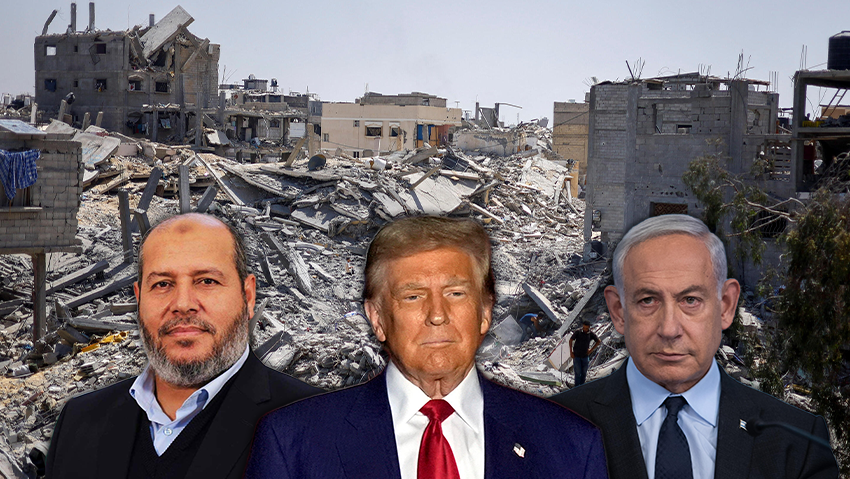Getting your Trinity Audio player ready...
These warnings have been repeatedly delivered to Prime Minister Benjamin Netanyahu. Security officials emphasize that without decisive action on post-war governance, Hamas could rebuild its political power and regain control of Gaza. "In the absence of an alternative, Hamas will inevitably return to power. Decisions must be made now, before any hostage deals or cease-fire agreements," officials said.
This concern resonates within both the IDF and the Shin Bet. While Hamas’ military capabilities have been decimated, officials caution that the group’s political infrastructure remains intact.
Approximately 1.9 million residents, about 90% of Gaza's population, are concentrated in humanitarian zones in central and southern Gaza. The IDF has a limited presence in these areas, focusing primarily on targeted airstrikes. Meanwhile, Hamas operatives continue to exert brutal control over the local population, silencing dissent with violence.
Get the Ynetnews app on your smartphone: Google Play: https://bit.ly/4eJ37pE | Apple App Store: https://bit.ly/3ZL7iNv
"When families try to resist, Hamas suppresses them ruthlessly. But the larger issue is the absence of leadership or energy for rebellion," one military official explained.
Security officials outline three potential paths forward
Restoring Palestinian Authority control: This would involve significant international investment, primarily from the U.S. and Gulf nations, to bolster the Palestinian Authority (PA). Such a move, coupled with normalization between Israel and Saudi Arabia, could reshape the region. However, Netanyahu has dismissed this option, citing political constraints within his coalition.
Establishing military rule in Gaza: Under this scenario, Israel would assume responsibility for Gaza’s civilian infrastructure, from food distribution to healthcare. This would come with enormous financial and diplomatic costs, which Netanyahu is reluctant to bear.
Defaulting to the status quo: This would allow Hamas to gradually reclaim power, undermining one of the primary objectives of the war—dismantling the group.
Lessons from the West Bank
The lack of strategic planning in Gaza mirrors Israel’s approach in the West Bank. While some voices on the political right call to dismantle the PA, Netanyahu has avoided making a decision. Security forces loyal to Palestinian Authority Chairman Mahmoud Abbas continue to fight Hamas, preventing its rise in areas near Israeli cities.
2 View gallery


(Photo: Reuters/ Mohammed Salem / Erin Schaff /Pool , Alex Kolomoisky, AP / Carlos Osorio)
"Just last week, five PA security personnel were killed fighting Hamas," a senior official noted. "They tell us, ‘If we’re not strong, Hamas will take over, and it’ll be your problem too.’ Yet, Israel neither supports the PA nor dismantles it, effectively leaving it to collapse slowly."
If the PA were to fall, security officials warn, Israel would need to double its troop presence in the West Bank, a logistical nightmare.
Israeli security officials stress they are not advocating for a Palestinian state or territorial concessions. Instead, they seek pragmatic solutions to safeguard national security.
"The lesson from October 7 is not just to stop turning a blind eye but to stop deferring critical decisions," one official said. "Difficult steps must be taken now. Hoping for quiet hasn’t worked—it’s time to face reality and act decisively."




